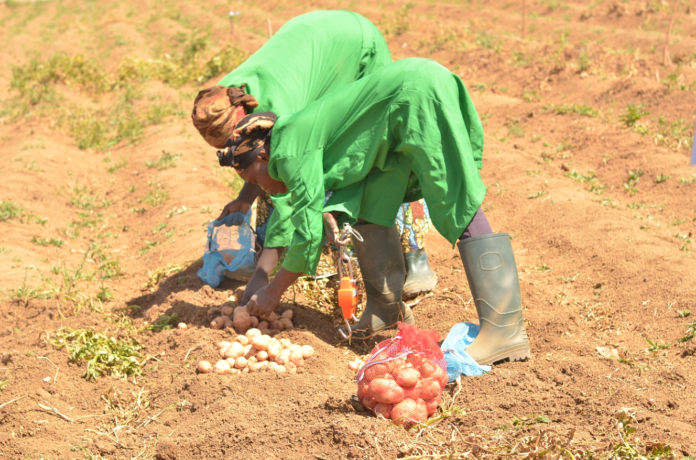The implementation of the Global Biotechnology Potato Partnership (GBPP) in Nigeria has offered Nigerian scientists and researchers the opportunity to build their capacity in the transformation and introgression of genes into local preferred varieties, Dr Charles Amadi has said.
Dr Charles Amadi, is the Principal Investigator, GBPP project in Nigeria under the USAID funded Feed the Future Project that is implemented in 4 countries – Kenya, Bangladesh, Indonesia and Nigeria. The Partnership is coordinated by Michigan State University and involves various partners including the National Root Crop Research Institute, Umudike, the African Agricultural Technology Foundation (AATF) and the International Potato Center (CIP).
Dr Amadi in a presentation on the two-year research work by the partnership at the 2024 Annual Review and Planning workshop of the National Root Crop Research Institute, Umudike, Nigeria noted that because of the Project, Nigerian researchers had been exposed to various trainings that equipped them to undertake this very important work in Nigeria.
“Over the years, we have had to travel to other parts of the world to undertake this transformation but courtesy of the GBPP project our researchers were given the opportunity to be trained and tutored. This is groundbreaking as it lay the foundation for the transformation of other crops in Nigeria apart from Potatoes,” he said.
Dr Amadi noted that the present set of biotech potatoes being evaluated were transformed outside Nigeria at the International Potato Centre (CIP, Kenya) and Michigan State University (MSU), USA. “However, in line with the objectives of developing local capacity, the Global Biotech Potato Partnership Project has trained a scientist from NRCRI, Umudike on how to develop biotech potatoes. Equipment to facilitate transformation of farmer preferred varieties of potatoes locally are being acquired through the help of the project.”
He also said in the presentation that the research work was on course and that after two years, the team had identified some potential candidates that are yielding over 300 percent over conventional varieties being planted in the country when no fungicide is applied.
“During these evaluations, biotech potatoes were grown together with their non-transformed relatives (Near Isogenic lines) and with some check varieties. In all these evaluations, when no fungicide is applied, late blight severely damaged the other potatoes, while the GM varieties were completely untouched. As a result, GM varieties gave yields that were 300% higher than their near Isogenic lines and the check varieties. However, when fungicide was applied, the yield difference disappeared showing that there were no yield loses in biotech potatoes because of the introduction of resistance genes”.
“In our evaluation in the confined and multi-locational trial sites at Kuru near Jos, Bokkos (Plateau State) and Kusuku in Mambilla (Taraba State), we discovered that without the application of fungicides on the potatoes, biotech potatoes were able to withstand late blights attacks and performed better and our farmers are happy,” he said.
“Over the years, many farmers have contemplated suicide while many have left farming of potatoes because of late blight attacks and high cost of fungicides which adversely affected the production of the crop in Nigeria” he added.
























